Live Reporting
- More than 30 million lives could be saved if countries across the globe implement strict measures in response to the spread of coronavirus, researchers from Imperial College London have said.If nothing is done, the world could see 40 million deaths this year, the study suggests - but social distancing could reduce this number by around half.If countries adopt further measures at an early stage - including testing, isolating cases and wider social distancing to prevent transmission to more people - 38.7 million lives could be saved.But the study warns that developing countries are likely to suffer the worst effects of the outbreak.The researchers looked at the health impact of the pandemic in 202 countries using a number of different scenarios, basing their estimates on data from China and high-income countries.
- India is planning to release prisoners to prevent the spread of infection in its overcrowded prisons.The western state of Maharashtra has decided to release on parole 11,000 convicts who have been sentenced to less than seven years. And Delhi’s maximum security Tihar jail will also release about 3,000 prisoners.They include convicts who will be released on parole, and under-trials on temporary bail.Indian prisons are notoriously overcrowded, making them potential virus hotspots. According to one estimate, there are some 400,000 prisoners in more than 1,300 jails. The majority of them are awaiting investigation or trial.Earlier in the week, the Supreme Court asked states to consider releasing all convicts who have been jailed up to seven years to decongest the prisons in a bid to help curb the virus.
- With India in the grips of a national 21-day lockdown, only those performing essential services are being allowed to work.But confusion over what counts as an essential service has led to nearly "five million truck drivers being stranded without food and access to sanitation across the country's highways", according to transport expert SP Singh.Many have been forced to sleep in the back of their trucks as they haven't been able to get back home. Some are also stuck outside factories, unable to offload high-value cargo because of prohibitory orders from local authorities."This could quickly morph into a law and order problem with robberies if the government doesn’t intervene,” says Balmalkit Singh, a transport lobbyist. He urged the government to dispatch food and set up shelter camps for these people.The situation has also disrupted deliveries of food and other perishables. But these interruptions are easing as states slowly allow more movement for essential goods.However, the long-term costs of the lockdown are high. The pandemic is quickly morphing into a humanitarian crisis in India. Several thousand stranded migrant workers have been forced to walk hundreds of kilometres across state lines just to reach their homes.
- UK supermarkets will use a government database of 1.5 million vulnerable shoppers to help prioritise delivery slots.Sainsbury’s and Waitrose say they will begin writing to people on the list next week.There is concern that those most in danger from the virus are going into stores because of a lack of online shopping slots.People in high-risk households have told us at the BBC that they are struggling to get priority treatment online or in stores. Read more here.
- Two MPs and 33 women's rights organisations have written to major hotel chains in the UK asking them to offer beds to domestic abuse victims trapped during the lockdown.In their letter, the group warned of the risk of an "epidemic of abuse" as victims are forced to stay indoors because of home-working, self-isolation and, in some cases, a reduction in job hours. They say domestic abuse rates have tripled in China since the lockdown began there."[Hotels] can make a difference to some of the most vulnerable women who otherwise have no-one to turn to for security, comfort and support," the letter reads.Signatories include Labour MPs Jess Phillips and Carolyn Harris, and groups including Southall Black Sisters and the Jo Cox Foundation.
- Just a day after India's finance minister announced a $23bn (£18.8bn) stimulus package, which critics said was not nearly enough to deal with the economic fallout of the coronavirus outbreak, the central bank has announced a raft of measures to stabilise the economy.The Reserve Bank of India (RBI) cut interest rates by 75 basis points to 4.4% and made it unattractive for banks to deposit funds with the central bank so that they lend it instead.This will help banks reduce their lending rates further and keep credit flowing, economists say."But we also need to remember that currently demand for credit is too weak because of the economy-wide shutdown. Hence, RBI will be required to act aggressively later also when demand starts reviving," Rupa Rege Nitsure, Chief Economist at L&T Finance told the BBC.The RBI also permitted banks to defer interest on working capital repayments and allowed a three-month moratorium on monthly payments for all outstanding fixed-term loans.The relaxed repayment schedule also gives relief for companies facing cash-flow problems, as the deferment will not have an impact on their credit rating nor affect the risk classification of their loan.
- Sports Direct boss Mike Ashley has apologised to the government after saying its shops should stay open during the coronavirus lockdown.He agreed to close its high street stores earlier this week in a U-turn, having previously argued that the company provided an essential service and should stay open.In an open letter, he said he was “deeply apologetic about the misunderstandings of the last few days”.He added: "Our intentions were only to seek clarity from the government as to whether we should keep some of our stores open. We would never have acted against their advice.”Mr Ashley also said that his Frasers Group would offer its entire fleet of lorries to help deliver medical equipment and supplies for the NHS and other key workforces.
- Vietnam has become the latest country to ban large public gatherings.It announced on Friday that indoor gatherings of more than 20 people and outdoor gatherings of 10 people or more would be banned, said a Reuters report.There are currently 153 confirmed coronavirus cases in Vietnam, with no known deaths.The country, which borders China, has been praised for its efforts in containing the disease. Much of this, the government says, is down to contact tracing."The important thing is, you need to know the number of people who might have come in contact with the disease, or returned from pandemic areas, then perform tests on these people," one senior official advising Vietnam's Emergency Operation Centre told the Financial Times.
Video content
- Besides self-isolation, social distancing is also seen as a crucial practice in many countries to prevent the virus' spread.But what exactly is the UK's advice on social distancing? The BBC's Laura Foster explains.
Video content
- Earlier, we reported on Australia's latest preventative measure: all citizens returning from abroad will be quarantined in hotels for 14 days.Over 3,100 cases have now been reported around the country. Several states and territories are in effect locked down. The government has also announced two economic stimulus packages worth A$189bn (£94bn, $109bn).The governmental response has been affecting all Australians - some more than others.
- South Africa has confirmed its first two deaths from coronavirus.Health Minister Zwelini Mkhize said both occurred in the Western Cape - one at a private hospital, the other a public hospital.Dr Mkhize said updated figures on coronavirus cases would be released shortly, but that they had risen to more than 1,000 since yesterday.Security forces have begun enforcing a three-week nationwide lockdown in an effort to stem the spread of the disease.Anyone violating the new restrictions faces six months' imprisonment or a heavy fine.
- Chancellor Rishi Sunak confirmed last night that affected self-employed workers will receive a grant of up to 80% of their profits - as long as they averaged under £50,000 per year.Mike Cherry, national chairman of the Federation of Small Businesses (FSB), told the BBC’s Today programme: “Initially it was thought to be too difficult and too expensive to help the self-employed, so at least this is something."But those who are recently self-employed and don't have a full year of accounts won't receive any help.Mr Cherry said: “Unfortunately, for many people whose businesses have completely stopped, the only option left for them is to claim for things like universal credit. This is going to be a huge problem for small businesses - if they are only entitled to statutory sick pay, it might not even cover their fixed costs.”
- A couple from Leeds have had to cancel their wedding - again.Gemma Turpin and Jake Moss were meant to get married on 24 April, reports the Yorkshire Evening Post. But the outbreak meant their wedding has had to be cancelled.This isn't the first time this has happened. Their first wedding date in 2017 was also cancelled when their son, now 10, developed pneumonia.The couple, who have been together 14 years, say they "don't have much luck".They hope to re-book their wedding for 2021, saying they were crossing their fingers for "third time lucky".
- Karen Ward was a special adviser to former chancellor Philip Hammond during his time in Number 11 Downing Street.She told the BBC’s Today programme that it was “hard to fault” the measures that new Chancellor Rishi Sunak has brought in, aimed at boosting the economy.“We’ve never had an absolute stop in activity in this kind of manner. So what they’re trying to do is get in place policies so that the economy can continue to run in this suspended animation - making sure people stay in work.”She called the prospect for the economy for the second quarter of this year “horrific”, but said: “What’s really important is the bounceback. When this disease is contained, which we don’t know when will happen, the economy has to be able to pop back to life really quickly.”
- In the Indonesian city of Yogyakarta, authorities have been trialling a mass sanitisation project since last week involving drones spraying disinfectant liquid over public and residential areas. They've adapted drones originally used in agriculture to spray crops and fields, modifying them to work in more congested settings like cities, reports Indonesian newspaper Tempo. Watch one in action here:
Video content
- We’ve read a lot about the race to improve and speed up testing. Maybe, man’s best friend could help. A British charity has teamed up with scientists to see whether dogs could help detect coronavirus with their good sense of smell.Previous research has suggested dogs can indeed sniff out malaria and so the group Medical Detection Dogs said it would work with the London School of Hygiene and Tropical Medicine and Durham University to see if that would work for Covid-19 as well.The charity has previously trained dogs for illnesses such as cancer, Parkinson's and bacterial infections by sniffing samples taken from patients."The aim is that dogs will be able to screen anyone, including those who are asymptomatic, and tell us whether they need to be tested," the charity's chief executive Claire Guest, said.
- It's a stressful time for many as the coronavirus pandemic shows no signs of slowing down. Schools have been shut, countries have closed their borders and many are in self-isolation at home.It's hard to keep up with all of the new rules and regulations that have been put in place. We're hoping this helps to answer some of the questions you might have:How do I know if I have the virus?What does it look like to stay two metres away from someone?Could I get infected while doing my grocery shop?How much of a risk does the virus pose to young people?How deadly is the virus?
- For many in the UK who have plans of moving house this Friday, it's probably best to delay it if possible.Housing Secretary Robert Jenrick went on Twitter to urge people not to move house unless absolutely necessary - and if it is, to do so while maintaining social distance.And you can find the government guidelines here.
- Coronavirus misinformation is flooding social media and messenger apps. Experts are calling on the public to practice "information hygiene".But how? What can you do to stop the spread of bad information?If you're in a rush, here's the lowdown:
- Stop and think. If in doubt, check the facts elsewhere
- Check the sources, even if they look legit it might be fake
- If you're not sure, then don't share
- Beware of emotional posts and potential bias
- Retailers have been warned not to "exploit fears" about coronavirus by jacking up the price of things like face masks or hand gels.James Loman, chief executive of the Association of Convenience Stores, told us at the BBC: “If a retailer is seeing this as an opportunity to put up prices without supply prices having changed...it won’t be authorities that get them, it’ll be the consumers. People remember how businesses behave during times like this."He said that a few stores might also have to increase prices for practical reasons: "What’s mainly happening is that their usual supplier doesn’t have that particular product in stock, so the retailer is having to drive 50 miles just to find it. Or, they’ve found another supplier and the price is much higher."If that is the case, we're telling retailers to be transparent with customers about it. People will hopefully understand."

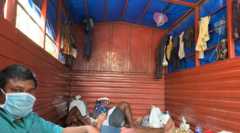
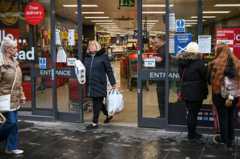
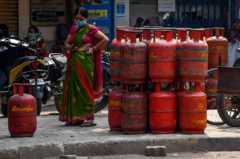

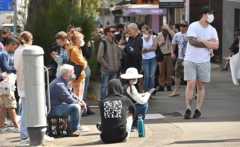
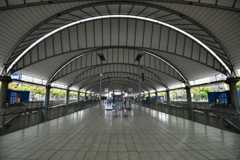
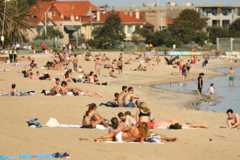
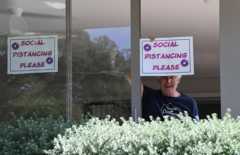
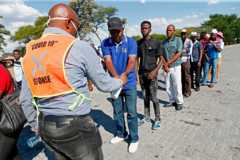

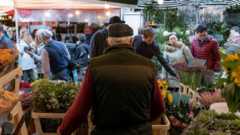
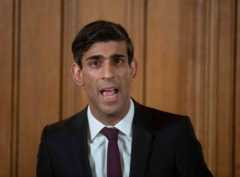

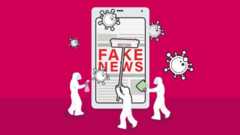


No comments:
Post a Comment